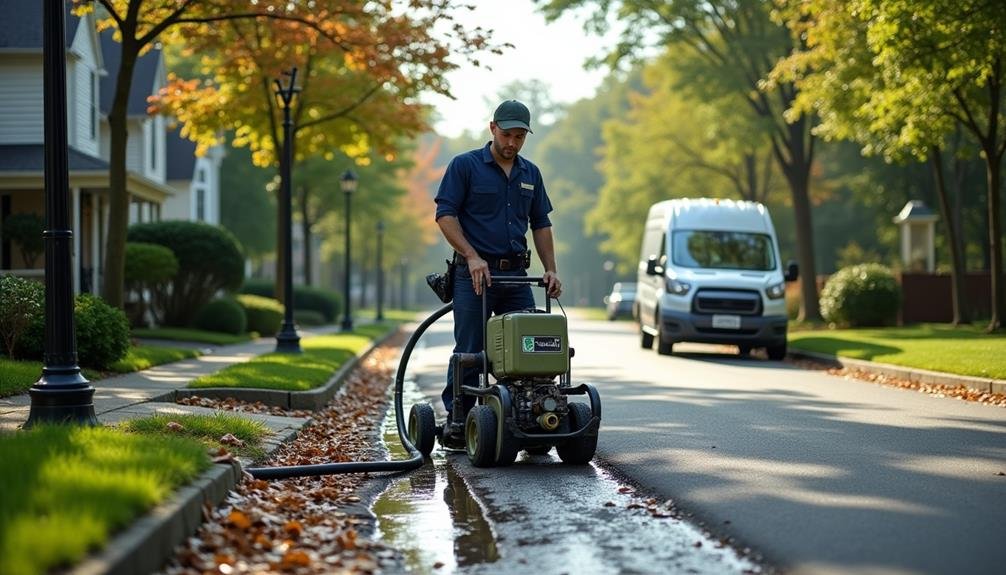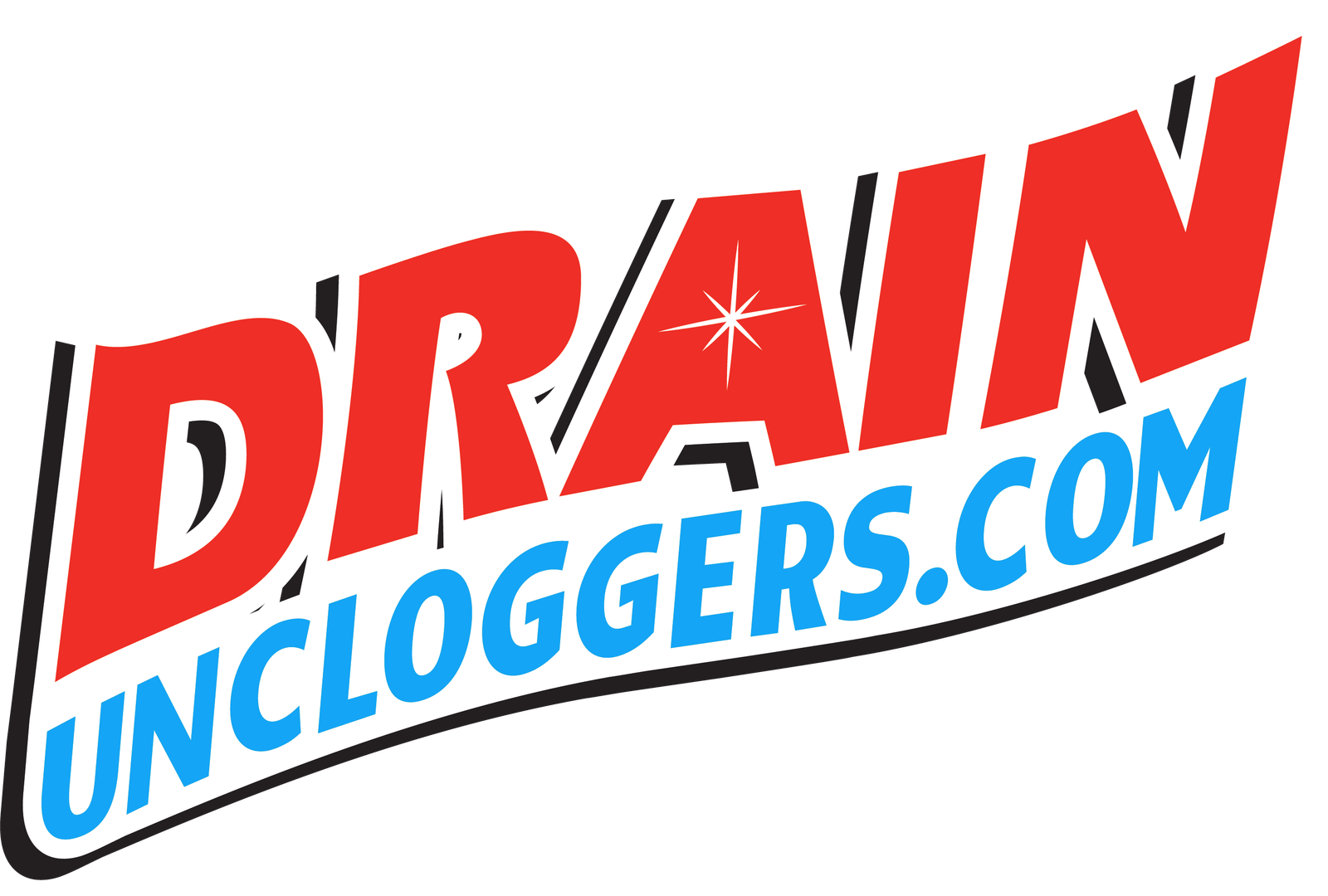When it comes to drain cleaning in New Jersey, you might think it's as simple as pouring some liquid down the sink, but there's much more to it. You'll want to understand the common causes of clogs, from grease buildup to invasive tree roots, and the effective DIY techniques that can save you time and money. However, knowing when to call in a professional can make all the difference. What tools and methods do experts use to tackle stubborn blockages? You might be surprised by the options available.
Common Causes of Clogged Drains
Clogged drains can be a frustrating inconvenience, often stemming from common causes that are easy to overlook. One of the main culprits is grease buildup. You mightn't realize it, but pouring cooking oils and greasy substances down the sink can create a sticky residue that clings to the pipes.
Over time, this buildup accumulates, leading to slow drainage or complete blockages.
Another significant factor is tree roots. If you have trees or large shrubs near your plumbing, their roots can infiltrate the sewer lines in search of moisture. Even tiny cracks in the pipes can provide the perfect entry point for these roots, causing blockages and even damage to your drainage system.
Understanding these common causes is vital in preventing future issues. Regularly cleaning your drains and being mindful of what you dispose of can save you from the hassle of dealing with clogged drains.
DIY Drain Cleaning Techniques
When dealing with clogged drains, it's helpful to know some DIY techniques that can quickly clear up minor blockages before they escalate.
One effective method is using a mixture of baking soda and vinegar. Pour a cup of baking soda down the drain, followed by a cup of vinegar. Let it fizz for about 30 minutes, then flush with hot water. This natural remedy not only helps break down buildup but also deodorizes your pipes.
Another option is to use a plunger. Make sure there's enough water in the sink or tub to cover the plunger's cup, then create a tight seal and pump vigorously. This can often dislodge the clog.
Don't fall for plumbing myths, like pouring grease or hair down the drain. These substances can cause serious clogs over time.
Instead, regularly clean your drains by removing debris from sink traps and using a mesh strainer to catch food particles.
If you try these techniques and still face issues, it might be time to reassess your approach. Regular maintenance can save you from bigger headaches down the line!
Professional Drain Cleaning Services
If you've tried DIY methods and your drains are still sluggish or clogged, turning to professional drain cleaning services can be a game-changer.
These experts have the tools and experience to tackle even the toughest blockages, ensuring your plumbing system runs smoothly again.
When considering professional services, it's essential to understand the cost factors involved. Prices can vary based on the severity of the clog, the type of service needed, and your location in New Jersey.
While some companies charge a flat rate, others may include additional fees for emergency services or after-hours work.
Service frequency also plays a crucial role in maintaining your drains. Many professionals recommend regular cleanings to prevent buildup and costly repairs down the line.
Depending on your household's usage, scheduling a professional cleaning every 1 to 2 years can significantly reduce the risk of clogs.
Tools Used in Drain Cleaning
Utilizing specialized tools is crucial for effective drain cleaning. One of the most commonly used tools is the plumbing snake, which helps you break up and remove clogs in pipes.
For tougher blockages, consider hydro jetting, a technique that uses high-pressure water to clear debris. Drain augers are another go-to option, allowing you to reach deep into the plumbing system to dislodge stubborn obstructions.
Chemical cleaners can also be effective, but use them cautiously to avoid damaging your pipes. If you're unsure about the condition of your pipes, drain cameras provide real-time video footage, allowing for thorough pipe inspection and helping you determine the best course of action.
For larger jobs, vacuum trucks come into play, sucking out debris and excess water from your drainage system.
Lastly, if you need professional help, rooter services are available to tackle any drain issues you can't manage on your own. By understanding these tools, you'll be better equipped to handle your drain cleaning needs effectively and efficiently.
Preventative Maintenance Tips
Regular maintenance can save you from costly drain issues down the line. To keep your drains in top shape, it's essential to incorporate a few preventative measures into your routine.
Start with seasonal inspections; these help identify potential problems before they escalate. Make it a habit to check for any signs of buildup or leaks during these inspections.
In addition to seasonal checks, schedule regular check-ups with a professional plumber. They can perform thorough inspections and cleaning, ensuring that everything flows smoothly.
You should also be mindful of what goes down your drains. Avoid flushing items that can cause clogs, like wipes or grease, and use drain guards to catch debris.
Another effective tip is to flush your drains with hot water regularly. This simple step can help break down any buildup and keep your pipes clear.
Lastly, consider using a mixture of baking soda and vinegar monthly for a natural cleaning solution. This not only keeps your drains fresh but also prevents unpleasant odors.
Signs You Need Drain Cleaning
Several noticeable signs indicate it's time for drain cleaning. One of the most common signs is slow drainage. If you notice water pooling in your sink, bathtub, or shower, it's a clear signal that your drains may be clogged.
You might also experience gurgling sounds coming from your pipes, which suggests air is trapped due to a blockage.
Another key indicator is the presence of drain odors. If you smell foul or sewage-like odors emanating from your drains, it's a strong indication that waste is accumulating and causing a blockage. This can lead to more serious plumbing issues if not addressed promptly.
Frequent backups are also a red flag. If you find yourself dealing with repeated clogs, it's time to take action.
Lastly, consider the age of your plumbing. Older systems can accumulate buildup over time, so regular maintenance might be necessary.
Ignoring these signs can lead to more significant problems down the line, such as extensive damage and costly repairs. If you recognize any of these symptoms, don't hesitate to call a professional for drain cleaning.
Keeping your drains clear ensures a healthier home environment.
Environmental Considerations in Drain Cleaning
Environmental sustainability plays a crucial role in the drain cleaning process. As you tackle clogs and buildup, it's essential to consider the impact of your cleaning methods on the environment. Many traditional cleaning solutions contain harsh chemicals that can harm local ecosystems and contaminate water sources.
Fortunately, you have options. Opting for eco-friendly solutions can significantly reduce your environmental footprint. These alternatives often use natural ingredients that are just as effective at clearing drains without the negative side effects. For instance, vinegar and baking soda can work wonders in breaking down organic matter, while enzyme-based cleaners target specific clogs without harsh chemicals.
When hiring a professional, don't hesitate to ask about their approach to drain cleaning. Many companies now offer chemical alternatives that prioritize environmental health. By choosing providers who emphasize sustainability, you're not just solving your drainage issues—you're also supporting eco-conscious practices.
Incorporating these environmentally friendly methods into your drain cleaning routine not only benefits your plumbing but also contributes to a healthier planet. It's a win-win situation for both you and the environment.


